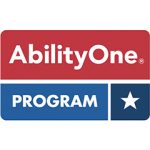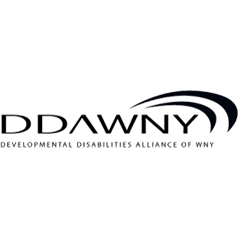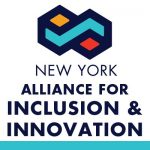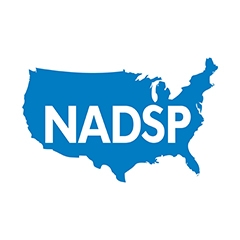Our friends at The Arc New York have updated their online advocacy campaign tool with new information. Here’s the latest:
The Senate and Assembly provided more funding in their proposed budgets than the Governor did in her proposed spending plan, but none of them have provided both of the things disability service providers are seeking in the 2024-25 NYS budget:
· A 3.2% Cost-of-Living Adjustment (COLA) with language that does not overly restrict how funds must be allocated
· A Direct Support Wage Enhancement (DSWE)
Please click the link below – today and every day – to advocate for more funding for people with disabilities and their support staff. It literally takes less than a minutes. Every click matters!
NY State Budget update:
- Disability service providers like The Resource Center are requesting a 3.2% COLA (cost-of-living adjustment) in the 2024-25 Budget.
- Governor Hochul’s Budget proposal only includes a 1.5% COLA.
- The Senate and the Assembly each included the 3.2% COLA in their proposed Budgets. We are grateful to the Senate and House for including the 3.2% COLA!
- However, the House and Senate Budget proposal limits the COLA to only covering wages and salaries. We need the COLA to also cover the other costs of doing business (health insurance, electricity, food, gasoline, maintenance, heat, mandatory insurances, etc.).
- Leaders in the Senate and Assembly have begun negotiating with Governor Hochul to finalize the State’s 2024-25 Budget.
Please take a few minutes to use the link below and send a message to our Senate and Assembly representatives. The message was prepared by the NYS Council for Community Behavioral Healthcare. While the message specifically mentions “3.2% COLA for Mental Health and Addiction Agencies,” the COLA also applies to agencies that support people with intellectual and developmental disabilities.
In her Executive Budget address, Governor Hochul pointedly acknowledged years of “neglect and disinvestment” in New York’s system of supports and services for New Yorkers with I/DD. She committed to reversing that neglect. However, the proposed 1.5% COLA committed to voluntary providers falls short of correcting the course and does not even compensate for the year’s inflation.
For decades, New York state has not made adequate investments to sustain the essential programs and services people with intellectual and developmental disabilities (I/DD) rely on. This systemic underfunding has driven us into a critical staffing crisis and eroded New York’s system of supports for its citizens with I/DD. The data speaks for itself:
- Average statewide staff turnover rate is 31%
- Turnover costs for non-profit providers have risen to more than $100 million annually
- Nearly 20,000 critical Direct Support positions are vacant statewide
- A 17% staff vacancy rate means New Yorkers with disabilities are missing out on needed care and support
Now we must tell our legislators to respond, by including our budget requests in their respective one-house budget bills. Our goals are twofold:
- Include the statutory 3.2% Cost-of-Living Adjustment (COLA) – the legislature needs to add 1.7% to make this happen
- Establish a Direct Support Wage Enhancement (DSWE) to make up for years of underinvestment
6 days left, Take 2 minutes to Advocate
Urge the Governor to “Invest in Me”: Support DSWE & COLA
In 6 days Governor Hochul will release the 2024-25 Executive Budget proposal. This means there’s still time for you to influence the decision-making process. Use this tool to send an email directly to Governor Hochul urging her to support the DSWE and COLA in the 2024-25 Executive Budget.
People with intellectual and developmental disabilities (I/DD) leverage the services of direct support professionals (DSPs) in order to live and work in their homes and communities. However, low wages due to stagnant reimbursement rates have led to high turnover and vacancy rates in the DSP workforce. The loss of DSPs across the field has left many people without stable access to home- and community-based supports.
Because we need data to understand the scope of the workforce crisis before we can fully solve the problem, the creation of a standard occupational classification (SOC) for DSPs is foundational to ensuring people with I/DD have access to critical supports and services. A unique SOC for DSPs would help states and the federal government collect data on demographics and turnover rates. This, in turn, will help inform policies to address the workforce shortage. A DSP SOC will also help states more accurately set rates, which could positively impact DSP wages.
Tell your members of Congress today to support the bipartisan “Recognizing the Role of Direct Support Professionals Act” (H.R. 2941 / S. 1332), which requires the Office of Management and Budget to consider a separate category within the Standard Occupational Classification system for DSPs.
For decades, New York state has not made adequate investments to sustain the essential programs and services people with intellectual and developmental disabilities (I/DD) rely on. This systemic underfunding has driven us into a critical staffing crisis and eroded New York’s system of supports for its citizens with I/DD. The data speaks for itself:
- Average statewide staff turnover rate is 31%
- Turnover costs for non-profit providers have risen to more than $100 million annually
- Nearly 20,000 critical Direct Support positions are vacant statewide
- A 17% staff vacancy rate means New Yorkers with disabilities are missing out on needed care and support
Now we must inform Governor Hochul how she can help address these issues in her 2024-25 Executive Budget. Our goals are twofold:
- Include the statutory 3.2% Cost-of-Living Adjustment (COLA)
- Establish a Direct Support Wage Enhancement (DSWE) to make up for years of underinvestment
With just a few clicks you can directly send Governor Hochul and the NYS Legislature a message by using this online form. You may customize who you are in the first paragraph as you see fit (parent, self-advocate, caretaker, supporter, etc.).
People with disabilities rely on Medicaid home and community-based services (HCBS) to live independently in their communities. HCBS help people with disabilities with everyday support, like getting around the community, employment supports, dressing, bathing, taking medication, and much more!
But due to the fact that Medicaid must fund institutions, and home and community-based services are optional, states don’t have the funding to support everyone in the community. This means that:
- Over 650,000 people are stuck on waiting lists,
- Direct care workers are underpaid due to stagnant wages, and
- Too often unpaid family caregivers are filling in the gaps in service – it’s a crisis!
We need Congress to take action NOW.
Tell your members of Congress to support the HCBS Relief Act, which will mandate these supports and services in Medicaid—because #CareCantWait!
Direct Support Professionals are the backbone of home and community-based services, providing essential support to promote independence and community inclusion for people with disabilities. However, DSPs are not designated with their own Standard Occupational Classification (SOC) by the Bureau of Labor Statistics (BLS). As a result, DSP wage and occupation data is not accurately captured. This diminishes the true impact of the workforce crisis, and hinders opportunities for professional advancement, certifications, and the pursuit of a lifelong career.
We are urging Congress to support the bipartisan bill, “Recognizing the Role of Direct Support Professionals Act” (S. 1332/ H.R. 2941), which creates a SOC for DSPs The bill recently passed the Senate Homeland Security and Government Affairs Committee with a unanimous vote. Please join our one-click campaign to quickly send a letter directly to your congressional representative calling for their support of the bill. This legislation is critical as we seek to get DSPs the recognition they deserve.
https://p2a.co/l6ixNM7
CALL TO ACTION!
THE NYS BUDGET MUST SUPPORT NEW YORKERS WITH DISABILITIES!
The New York State Budget is TWENTY-FOUR Days Late!
We must keep up our fight!
Add your voice to our one-click campaign!
Send a letter to ALL your representatives with just one click here! If you haven’t yet, do it now. If you’ve done it before, do it again!!!
Pick up the phone!
Call your local elected officials and tell them why the I/DD community is depending on an 8.5% COLA increase in this year’s budget. Find your legislators and their phone numbers here.
Shout on Social!
Make some noise on social media! Tag Governor Kathy Hochul, Majority Leader Andrea Stewart Cousins, Speaker Carl Heastie, and your local elected officials in all your posts. Grab these downloadable graphics, or tell your own story!
Help make our collective voice heard in this final push!
The 8.5% COLA must be NON-NEGOTIABLE!
The NYS Senate and Assembly released their one-house budget proposals, which increased the 2.5% cost-of-living-adjustment (COLA) proposed by Governor Hochul to 8.5% for voluntary providers! This could not have been accomplished without your hard work and diligence. Thank you!
But we’re not done yet.
We need your help once again to get there. We need to make sure our legislators know that anything less than 8.5% is non-negotiable and to send a message to Governor Hochul to adopt the 8.5% COLA in the Enacted Budget.
Take Action!



























 200 Dunham Avenue, Jamestown, NY, 14701
200 Dunham Avenue, Jamestown, NY, 14701










